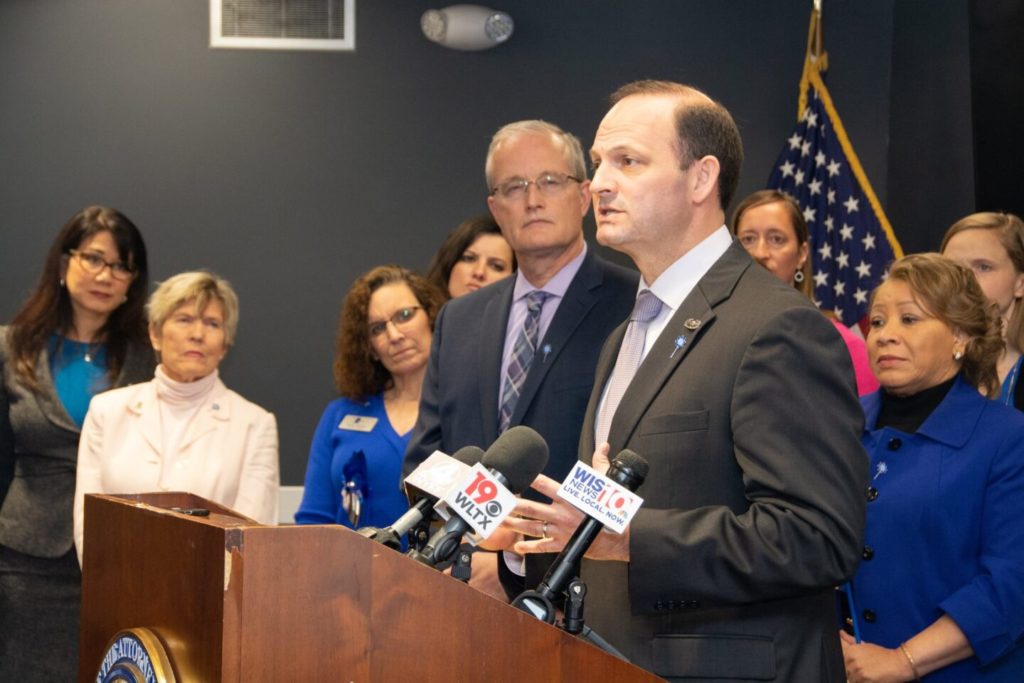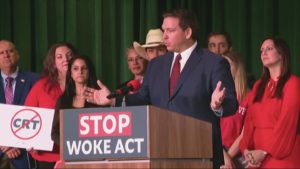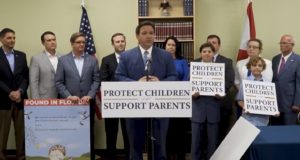Moms for Liberty receives support from 10 state attorneys general in lawsuit against school board for restricting parents’ speech
South Carolina Attorney General Alan Wilson filed an amicus brief with nine other AGs on behalf of Moms for Liberty, which accused a Florida school board of violating the First Amendment rights of…

South Carolina Attorney General Alan Wilson filed an amicus brief with nine other AGs on behalf of Moms for Liberty, which accused a Florida school board of violating the First Amendment rights of parents.
“Instead of being silenced, parents should absolutely have the opportunity and protection to speak at school board meetings or public forums,” Wilson said in a press statement. “Parental speech, particularly regarding education, is ingrained in our nation’s history and must be protected at all costs.”
He was joined by the attorneys general of Alaska, Arkansas, Idaho, Indiana, Kentucky, Louisiana, Mississippi, Montana and Texas in defending Moms for Liberty, a Florida-based non-profit advocating for parental rights in schools.
Although the pandemic sparked a resurgence of parental involvement in education, the trouble in Brevard County, Florida didn’t start until the fall of 2021, when the Brevard Public Schools board made its public comment policy more restrictive.
The changes allowed the board to shorten allotted speaking times, control when certain topics could be discussed, and ban signs from being raised during the meeting.
At the time, citizens were divided over the new regulations.
“I am all for an environment inside of the board room where people are able to do their jobs,” said Tamsin Wright, a mother of two.
Katie Delaney, who later became a plaintiff in the lawsuit, disagreed.
“We are supposed to have robust back and forth between our leaders and the citizens,” Delaney argued. “This is our government – this is not their government; they are not our rulers.”
Moms for Liberty eventually filed a lawsuit against the Brevard school board.
In February, a U.S. District judge ruled against the group, saying the restrictions were content and viewpoint neutral and therefore not unconstitutional. But the plaintiffs are now taking their case to the U.S. Court of Appeals.
Alliance Defending Freedom also filed an amicus brief, accusing the Florida district of silencing beliefs it disagreed with.
“For example, officials censored a member of Moms for Liberty who criticized ‘administer[ing] hormone blocking drugs to small children in the progress of transitioning their gender,’ claiming the speaker’s comments ‘insult[ed] half of [the] audience’ and ‘were personally-directed, abusive, and irrelevant,’” ADF wrote.
“Too often, public universities and schools weaponize their speech policies to censor unpopular – yet protected – speech,” added Matthew Hoffmann, legal counsel for ADF. “The government doesn’t get to decide which views it will accept and which views are ‘offensive’ or ‘abusive.’
“We urge the 11th Circuit to make clear that freedom of speech is for everyone, and that it’s unlawful for the government to interfere with public debate.”



